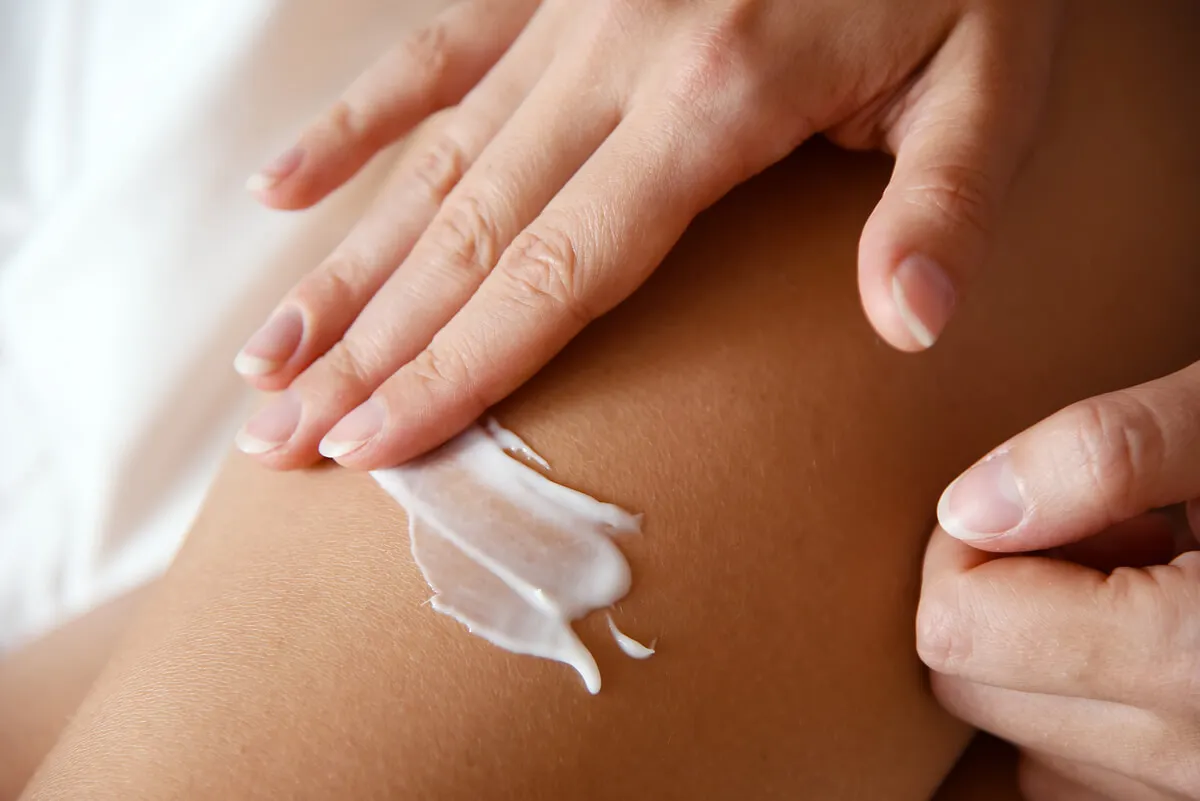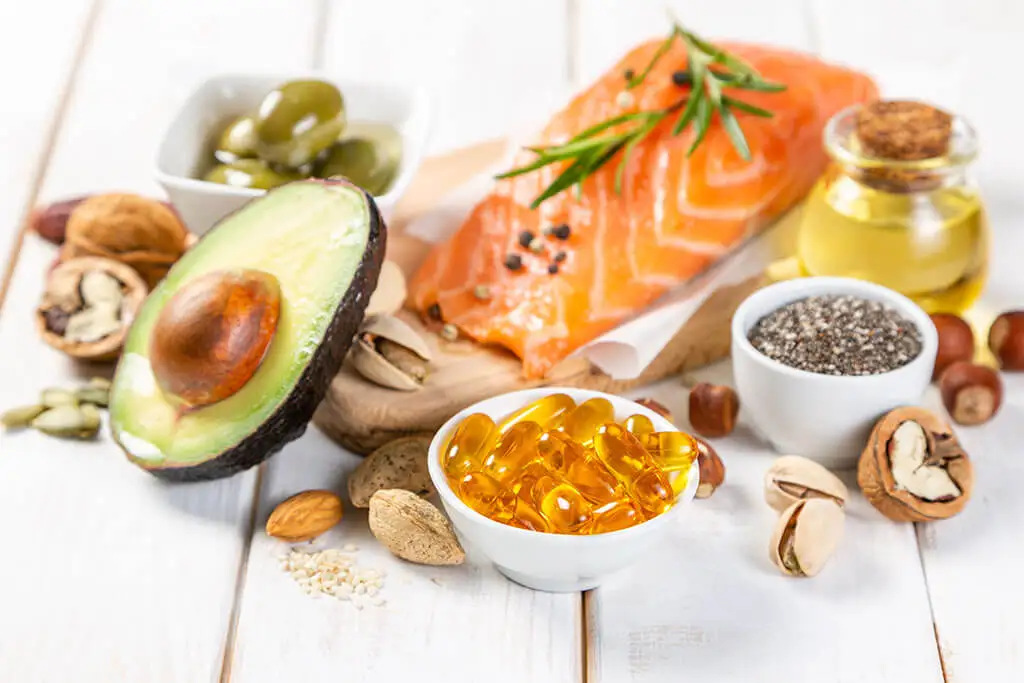The Differences Between Body Cream and Body Lotion: What Are They For?


Reviewed and approved by the nurse Leidy Mora Molina
There’s a type of cream and body lotion for each type of skin. Although the two alternatives pursue practically the same objectives, it’s your skin characteristics that should determine which one to use.
The Healthy Skin Foundation emphasizes the importance of the skin as a mechanical barrier with immune defensive properties, which works in connection with the rest of the body. If this barrier decreases its effectiveness, dryness or dermatological diseases may appear.
This is when both creams and body lotions come into play, as they’re products that offer an additional layer of protection against dryness and environmental pollutants. Learn all about how these substances work here.
What is a body cream, and what are its advantages?
Body creams are formulas prepared with a mixture of oils, water, and emollients. The consistency is thicker compared to other options; this is due to the water content, which ranges between 60% and 70%, providing greater homogeneity.
They exert moisturizing power on the skin, penetrating deeply to block water loss. The heavy formulation of the creams is conceived to take care of the thick dermis, as opposed to delicate tissues, such as the facial.
In general, the ingredients that mix body creams tend to come from nature. Coconut oil, flowers, and herbs stand out among the extracts selected to moisturize, soften, and soothe skin conditions.
Creams can be moisturizing – that is, they absorb or retain the skin’s natural oils. There are also moisturizers, which are suggested to add oils to skin damaged by dryness.
The advantages of body creams are the following:
- It prevents irritation: Itching or rashes can be treated by applying body cream a couple of times a day to restore softness to the dermis.
- Body cream provides radiance and vitamins: Just like the complexion, the skin on the rest of the body demands nourishment. When you get into the habit of using creams, you receive as a response attractive skin, without dullness, and that’s healthy.
- It can protect your skinagainst ultraviolet (UV) rays: Many body cream brands include sunscreen to help prevent blemishes and radiation damage. However, they’re not a substitute for sunscreens.
- Body cream is ideal for rough areas: The legs, feet, hands, and elbows tend to crack more than other areas of the body. This is especially the case during cold weather, when thick creams can help to prevent the cracking effect.

We think you may be interested in reading this, too: Mandelic Acid: What Is It and What Are its Benefits for the Skin?
What is a body lotion, and what are its advantages?
Body lotions, on the other hand, are substances of lower viscosity and are lighter than creams. The skin absorbs these mixtures quickly, evaporating the watery effect and leaving a refreshing, softening, and soothing sensation.
Lotions are intended to moisturize. They contain 70-80% water, which is favorable for normal to combination dermis. The main ingredients in this type of dermatological product are emollients, sometimes combined with occlusives such as oils.
Hyaluronic acid, lactic acid, and squalene are active ingredients in body lotions. Here are some other benefits of lotions:
- They’re apt for daily use: Thanks to their lightness, you can apply them every day.
- Body lotions are moisturizing: The moisturizing ability of lotions has powerful ingredients, thus preserving moisture.
- Lotions can help extend self-tanning: By sufficiently moisturizing, lotions contribute to the prolongation of self-tanning.
- They’re good for oily skin: They’re not sticky and thick, so they favor oily skin. In fact, it’s possible to apply lotion to a part of the body that does not require as much hydration while applying cream to another part.
Like this article? You may also like to read: 5 Tips to Protect the Skin Against the Effects of Air Conditioning
Recommendations for better effects of body cream and lotion
The skin looks much more healthy when you treat it from the inside out. This means should shouldn’t leave all the work to creams or lotions; always make sure to drink at least 8 glasses of water every day. Some people shy away from this habit, but that’s not right.
Also, get enough rest. As long as you sleep at least 8 hours a day, you are helping the skin’s well-being.
Eat a balanced diet so that the body receives the vitamins and minerals that influence skin health. Among the foods that cooperate with the good appearance of the skin, the following stand out:

Which one to choose: Body creams or body lotions?
Both body creams and lotions heal dry skin, making it smooth and even. For daily moisturizing, it’s advisable to use lotions; creams should be reserved for cases that require intense moisturizing. However, it’s important to emphasize that this shouldn’t be a rule or limiting factor; it’s essential to use at least one.
According to the American Academy of Dermatology, you should consult your specialist about the right substance for your skin type and, when choosing, consider the severity of the dryness you’re experiencing.
All cited sources were thoroughly reviewed by our team to ensure their quality, reliability, currency, and validity. The bibliography of this article was considered reliable and of academic or scientific accuracy.
- Cómo elegir la crema hidratante adecuada para tu piel. Academia Americana de Dermatología. Estados Unidos; 2022. https://www.aad.org/public/everyday-care/skin-care-basics/dry/pick-moisturizer
- Escualeno. INCI Beauty. https://incibeauty.com/ingredients/8261-squalene
- Olasolo P, Sanmartín Jiménez O, Soto de Delás J, Truchuelo Díez M. La importancia de una piel sana. Fundación Piel Sana. Academia Española de Dermatología y Venereología. España; 2016. https://fundacionpielsana.es/piel-sana/la-importancia-de-una-piel-sana
This text is provided for informational purposes only and does not replace consultation with a professional. If in doubt, consult your specialist.








